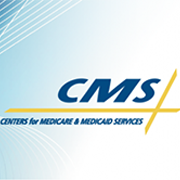ICD-10 Grace Period News Leads 2015’s Top 5 Stories
ICD-10 implementation news was the focal point of our top 2015 stories. News of a proposed "grace period," talk of delay, and CMS announcements were clear highlights.

- With December already halfway over and talk of holiday celebrations and New Year’s resolutions well underway, here is RevCycleIntelligence.com’s year-end top stories list.

The International Classification of Diseases, 10th Revision (ICD-10) was the clear focal point of our most popular stories.
The year appears to be closing out on a positive note for the healthcare industry regarding ICD-10 aftermath. Earlier this year, talk of high denials rates was rampant but perhaps merely speculative at best. The healthcare world thankfully did not implode once ICD-9 switched over.
A recent report from KPMG confirmed an 80 percent ICD-10 implementation success rate. Over 1 million claims were successfully processed this year at a 99 percent rate, said the Advanced Data Systems Corporation (ADS).
But the ICD-10 coding smoke is still in the process of clearing as the healthcare industry evaluates future objectives.
“The ultimate goal is to identify trends and then to act on those trends. And ultimately provide a better quality of care at a lower cost,” said Peter Barrett, DPM, Penn Ankle and Foot Care’s Practice Owner, to RevCycleIntelligence.com earlier this month.
“From a quality and compliance perspective, it's really important that providers monitor that performance and set some standards from a KPI [key performance indicator] perspective,” stated Ken Bradberry, Chief Technology Officer for Xerox Commercial Healthcare, to RevCycleIntelligence.com last November.
“We've finally made that jump to ICD-10. Now, what are we going to do with it? What are health systems going to do to improve their quality and enhance their services? That's really up to that individual health system as to how sophisticated they're going to be in using that additional data that they could use to improve their quality of service.”
Bradberry additionally stressed the importance of effectively utilizing Electronic Medical Records (EMRs) moving forward.
“How well your EMRs are deployed is also very important, because it's a 'garbage-in, garbage-out' kind of scenario. …You have to be very mindful of the whole delivery system. ICD-10 is just one part of that.”
Here are the top 5 stories of the year
Continuing yesterday’s list, here are the top 5 RevCycleIntelligence.com stories for 2015.
5. What Steps Comprise the Life Cycle of a Medical Claim?
 The second most read RevCycleIntelligence.com topic of the year – besides ICD-10 implementation news – involved a behind-the-scenes look at the life cycle of a medical claim.
The second most read RevCycleIntelligence.com topic of the year – besides ICD-10 implementation news – involved a behind-the-scenes look at the life cycle of a medical claim.
From denied claims to paid claims and every action in between, the claim life cycle is indeed convoluted and sometimes tricky to grasp.
Simple yet effective recommendations to avoid revenue cycle snares were presented, such as the incorporation of spreadsheets.
Recognizing how each step is distinguished from the next and quantifying denial rates helps reduce errors and keep costs down.
When medical practices fail to hit their best practice benchmarks, they also fail to strengthen revenue cycle management.
4. CMS Revises ICD-10 FAQ List for Billable Code Clarification
 The Centers for Medicare & Medicaid Services (CMS) made some vital changes to its FAQ documentation created to help healthcare providers more clearly understand the ICD-10 transition.
The Centers for Medicare & Medicaid Services (CMS) made some vital changes to its FAQ documentation created to help healthcare providers more clearly understand the ICD-10 transition.
CMS mentioned claims will not be audited for the first 12 months following implementation. CMS also updated numerous formerly vague definitions, such as family codes, billable codes, and valid claim codes. Additionally, the ICD-10 implementation deadline of October 1 remained unchanged.
CMS made a series of announcements following the implementation kickoff to address ICD-10’s isolated issues, ICD-10 ombudsman objectives, and dual claim questions.
3. AMA Backs House Bill Aimed to Freeze ICD-10 Implementation
 A new bill proposed by the House of Representatives last May – the Cutting Costly Codes Act of 2015 – intended to freeze ICD-10 implementation, under scrutiny by the American Medical Association.
A new bill proposed by the House of Representatives last May – the Cutting Costly Codes Act of 2015 – intended to freeze ICD-10 implementation, under scrutiny by the American Medical Association.
“The differences between ICD-9 and ICD-10 are substantial, and physicians are overwhelmed with the prospect of the tremendous administrative and financial burdens of transitioning to ICD-10,” stated James L. Madara, MD, AMA’s CEO and Executive Vice President, in a letter to representative Ted Poe (R-TX-2).
“The timing of the ICD-10 transition could not be worse as many physicians are currently spending significant time and resources implementing electronic health records (EHRs) into their practices and adopting new payment and delivery models.”
“Managing the change to ICD-10 at the same time as these care innovations may force physicians to choose to update their code set in order to get paid over improving the quality of patient care.”
“Let’s just get to ICD-11 and get it done properly,” added Steven Stack, AMA President Elect to Healthcare Finance.
2. ICD-10 Implementation Freeze Proposed by House Bill
 Is an ICD-10 code for when someone accidentally trips and falls into a lamp post really necessary? Perhaps not. Representative Ted Poe (R-TX-2) criticized the problematic nature of a high volume of ICD-10 codes.
Is an ICD-10 code for when someone accidentally trips and falls into a lamp post really necessary? Perhaps not. Representative Ted Poe (R-TX-2) criticized the problematic nature of a high volume of ICD-10 codes.
Poe also pushed for the introduction of the “Cutting Costly Codes Act of 2013” bill aimed to ban the Department of Health and Human Services (HHS) from making the ICD-10 switch and implementing HIPAA code set standards.
The House of Representatives advocated last May to cease ICD-10-CM/PCS implementation via the H.R. 2126 bill. Other leading organizations were on board, such as the Coalition for ICD-10.
“Avoiding further delay in ICD-10 implementation is critical in order to limit implementation costs and be able to start leveraging the opportunities anticipated by the availability of better healthcare data,” the Coalition asserted.
1. House Bill Plans 2-Year ICD-10 ‘Grace Period’ Without Denials
 The top RevCycleIntelligence.com story details one of the most groundbreaking healthcare announcements of the year.
The top RevCycleIntelligence.com story details one of the most groundbreaking healthcare announcements of the year.
Last June, the House of Representatives proposed a two-year ICD-10 “grace period” to help make the ICD-10 transition smoother for physicians and healthcare providers.
Healthcare providers’ coding errors would not yield denials, according to H.R. 2652. Payments would not be withheld.
“Although another delay would assist many in the medical community, if ICD-10 is to be implemented on October 1, patient care should not suffer,” wrote Representative Gary Palmer (R-AL-6) in a letter to Congressmen.
Some organizations, such as the American Health Information Management Association (AHIMA), stated a two-year “grace period” was not necessary: “The ICD-10-CM code set is like a dictionary that has thousands of words, but individuals use some words very commonly while other words are never used.”
“From our perspective, a delay is not only unnecessary, it’s not a solution to any of the problems that have been raised, such as financial disruptions immediately following the transition,” stated Sue Bowman, MJ, RHIA, CCS, FAHIMA, AHIMA’s Senior Director of Coding Policy and Compliance, to RevCycleIntelligence.com.
